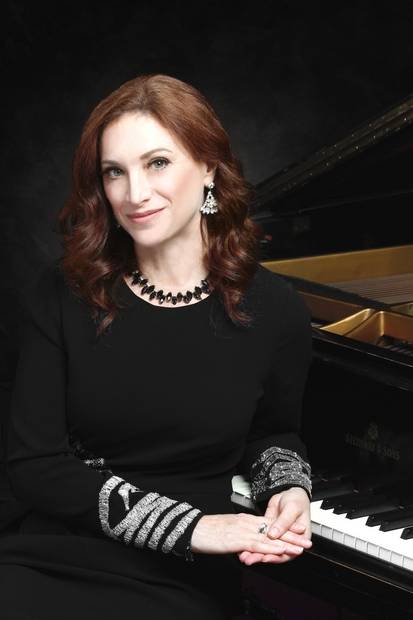About
Robin Spielberg is a Pianist, Composer, Author, Storyteller, Educator, Entrepreneur & Spokesperson for American Music Therapy Association
Robin has recorded 18 albums of piano-based instrumentals including albums of solo piano originals, holiday CDs, an album of lullabies, an album of Americana music, and songs from American music theater and films.
Robin is a well-known speaker on the subject of music & wellness; her TEDx Talk can be found here https://www.youtube.com/watch?v=8LTusPwrH9E&t=399s
She is the author of “Naked on the Bench: My Adventures in Pianoland,” (available in softcover and audiobook) which chronicles Robin’s journey as an artist and lessons learned on and off the piano bench.
She is co-founder and partner of Kosson Talent, an entertainment booking agency for national touring acts, an Adjunct Professor in the Music Business & Technology program at Millersville University, Secretary of the Board for the Ohio Arts Professional Network, a voting member of the Recording Academy, and a member of both the Screen Actors Guild and the American Federation of Musicians. Robin Spielberg was named to the prestigious Steinway Artist Roster in 1996.
A web site devoted to Robin’s projects can be found at http://www.robinspielberg.com , and her music can be purchased/streamed on Amazon, Apple Music, Spotify and other streaming services
“THIS IS ROBIN SPIELBERG” on Spotify: https://open.spotify.com/user/spotify/playlist/37i9dQZF1DZ06evO0V8nf9
Twitter: @robinspielberg
Instagram: robinspielberg.real
Robin Spielberg rehearsals and tutorials: https://www.youtube.com/playlist?list=PLg4iI2l14yP9C4x0-mHpu5iVPRBZpIpSl
Robin Spielberg OFFICIAL music videos: https://www.youtube.com/playlist?list=PLg4iI2l14yP_R4xlzGwTmemZez81uMMsW
